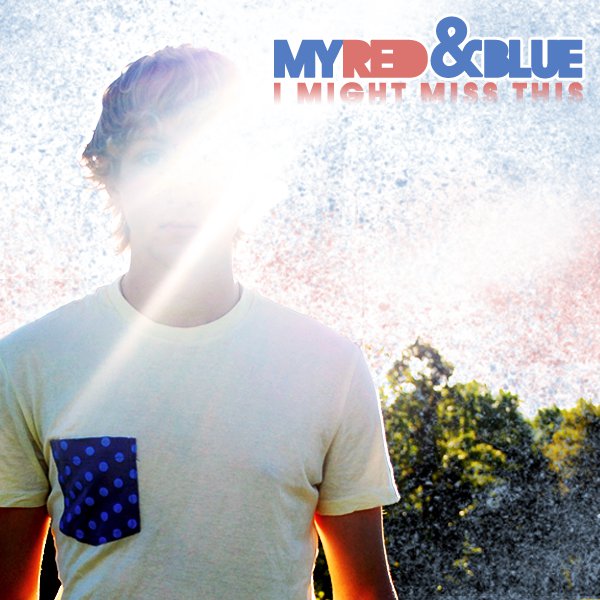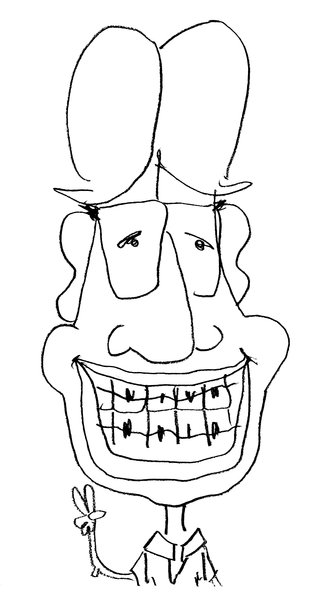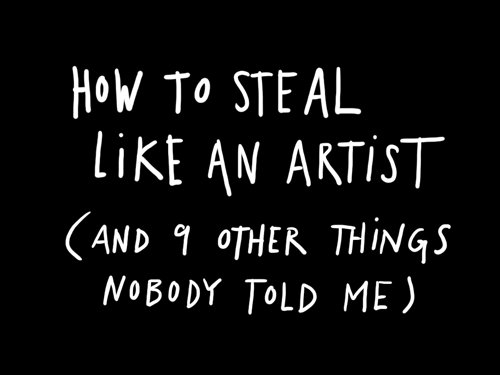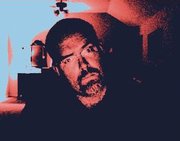OK. This singer/songwriter happens to be my son. But he inspires me, as I think he’ll inspire you, with his creativity. Ben Eggebrecht has now spent almost two years at Belmont University where he has recorded an EP under the band name “My Red and Blue,” which you can find on iTunes. The title of the EP is “I Might Miss This.” He was the runner-up in last fall’s songwriter showcase at Belmont, will be interning this fall at Word Records on Nashville’s Music Row, and hopes to study at “Belmont West” in Los Angeles next spring.

As you will see below, Ben has been creative as long as I…or he…can remember. I remember when, at the age of three, he made an entire set for a little play based on The Three Billy Goats Gruff. But writing songs? That’s beyond me. I have no idea how he, or any other songwriter does it. It’s a mix of music, chord progressions, structure, poetry, and language. It’s an art that makes this world a better place. Just think of how music has enhanced your life.
Sure, he’s young. Sure, he’s my son. But creativity doesn’t have an age or culture. It’s not nepotistic, either. It’s young, old, northern, southern, black, white, red, and blue. If I didn’t ask Ben to participate in this little exercise, “I Might Miss This” opportunity to share with you all some useful thoughts.
So listen in on this conversation between father and son:
Tom: Define “creativity.”
Ben: Giving the word a constricting definition would go against everything that the word actually means…so I’ll just go ahead and say that creativity can literally be anything you want it to be.
Tom: When did you first realize that you were “creative”?
Ben: When I was about three years old, I began building things out of anything and everything. I remember one instance where I created a full-scale house out of pine needles. You don’t believe me? Well you can take that argument up with my imagination 😉 I would also put on plays with my sister, for which I would build sets and costumes out of cardboard boxes and other household items. Spaceships, castles, wolf ears, swords, and all. However, at that time I suppose I hadn’t yet actually REALIZED that I was creative. Upon learning what the word “creativity” meant, a whole new can of pessimistic worms was opened. Creativity became something of substance that I could doubt. I started to think that people were born with or without it…and that maybe I lacked the necessary amount of it in order to take me very far in a creative career. Not good…especially for a kid who has always dreamt of being a songwriter. Fortunately, going to a university in a thriving creative community has reunited me with a bit of my long lost three-year old mindset…so pure…so blindly passionate…and so curious.
Tom: How do you cultivate your creativity?
Ben: Ironically enough, I cultivate my creativity by reading. I say “ironically enough” because I used to stay as far away from books as possible. It was not until fairly recently that I discovered the importance of literature in my own creative endeavors. It first occurred to me while reading The Great Divorce by C.S. Lewis last summer. His writing style was like nothing I had ever encountered. That book enthralled me…and interestingly enough, I wrote some of my favorite songs while reading that book. I am convinced that exposing myself to the words and imagination of Lewis sparked much of my creativity during those summer months. Along with reading, I sometimes cultivate my creativity by letting my imagination run wild. For example, when I worked at my school’s rec gym last summer, I found ways to pass the time and allow myself be creative on the job. I’m not lying when I tell you this…when I got bored, I would literally pretend that I was a captain on a pirates’ ship at sea. Now that I have all of you wondering if I suffer from schizophrenia, let me redeem myself by concluding with a word of advice. It’s okay to act like a kid! It’s good for you! It loosens you up and stretches your imagination.
Tom: How do you handle a “creative block”?
Ben: When suffering from creative blocks, I go on drives. I do this for several reasons. For one, it gives me a mental break. It relieves much of the stress that ensues when over-thinking one idea for too long. Driving also reminds me that there is a world outside of my dorm room…or wherever it may be that I am trying to write or create. It brings me back to the realization that the world is full of stories, and that they are often times occurring without our knowledge. In the midst of that realization, I find myself contemplating life and all of its elements. This contemplation usually results in a fresh outlook when returning to my work.
Tom: When and where do you do your most creative work?
Ben: I have found that it’s similar to what people say about searching for true love…”It’ll come when you least expect it!” That makes so much sense because when such passion is wrapped around a thought or an idea, something is bound to come of it. So, I try not to force creativity. Instead, I make an attempt to sit back and let it come to me. I don’t believe there is an actual place where I do my most creative work. When writing songs, I tend to let my mind slip away into the location of the story. For me, writing sessions are nothing but glorified daydreams that later become tangible through the medium of music. In other words, I usually don’t even think twice about my physical location.
Tom: Who is your “creative inspiration”? Why?
Ben: God. Why? It’s simple. He created everything that inspires me to create. Although true, I suppose that was a bit of a “Jesus Juke“…so I’ll finish my answer with a more tangible one. My dad. Yes, the author of this incredible blog (SHAMELESS PLUG) is my creative inspiration. Growing up, I took for granted all of the ways in which he encouraged my creativity. He gave me opportunity, and still does. In my opinion, all creativity starts with opportunity. So, thanks Dad! And Mom, don’t worry…the same goes for you too!
Tom: What advice do you have for aspiring “creatives”?
Ben: Walt Disney once said, “The way to get started is to stop talking and start doing!” That is some of the greatest advice I’ve ever heard. Don’t sit on your idea because you’re afraid..pitch it because you’re confident! You don’t think you have a reason to be confident? Let me prove you wrong. YOU have something to offer that NOBODY else in the world will ever have! Never forget that. Now go have some fun and create!!!
What do you think of Ben’s ideas about creativity? Any new insights?










